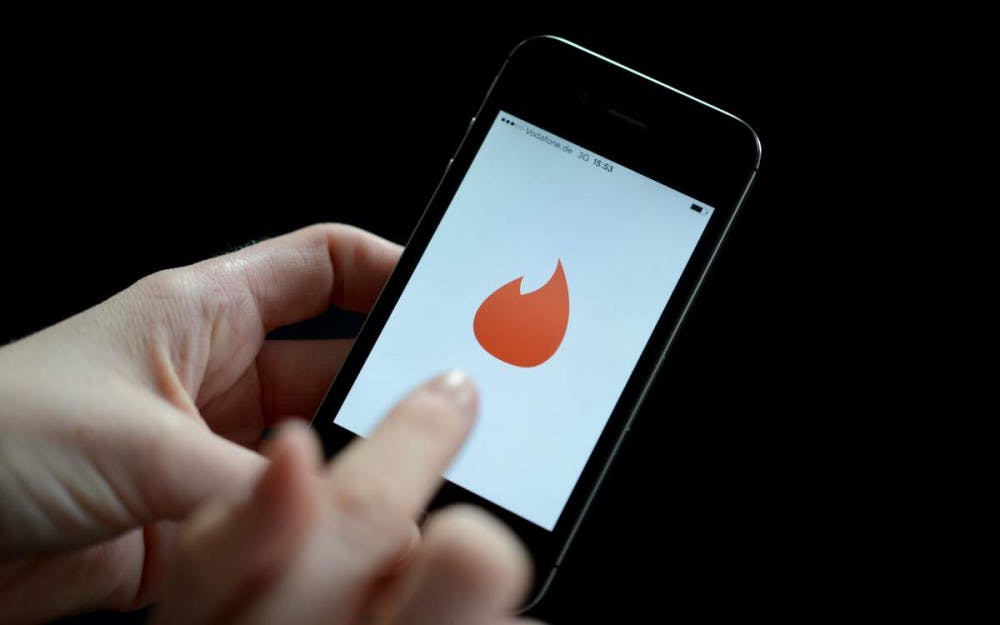By Frank Festa
Staff Writter
Imagine sitting in a 1960s high school cafeteria, peering desperately at a girl you’ve been dying to talk to, sitting a few tables away. You don’t have her number to text her and break the ice — you’ve got no phone in your pocket to do so in the first place. You can’t check her Facebook or Instagram to learn her name or interests. You simply have to muster the bravado to glide across the room and introduce yourself, hoping she won’t laugh in your face.
Emelia Stevens, 72, recalls meeting her late husband in a setting all too similar, admiring his courage and honesty when they first met in high school.
“He came across the room of the school cafeteria, head held high, and told me he had admired me for quite some time,” Stevens said. “I couldn’t help but blush. How charming he was.”
Fast forward to modern day, where young adults are glued to their handheld devices and detached from the individuals around them. In a world of selfies and social media, social interaction — particularly the coveted skill of attracting the opposite sex — has suffered immensely. The average person finds a great obstacle in approaching a person of interest. For validation, look no further than a college campus and the common student.
Ryan, a junior finance major at the College who chose not to disclose his full name, describes himself as someone who is inseparable from his phone.
“Having everything I need right at my fingertips makes life a lot easier,” Ryan said. “I’m always checking the news or the weather without having to read the newspaper or turn on the TV, and being able to just text someone who isn’t right in front of you is convenient.”
His demeanor changed when asked how he felt about approaching a girl he couldn’t help but notice from across the Atrium in Eickhoff — much like how Mrs. Stevens’s husband noticed her all those years ago.
“You know, I’d love to go up to her and ask her to dinner, but to be honest, I’m just nervous when it comes to that kind of stuff,” Ryan said. “I don’t think that’s how it works anymore. She’d probably look at me like I had six heads.”
He was also quick to admit that he’d feel much more confident if he had been given her number by a friend and was able to build up a connection via texting.
Ryan isn’t alone in holding these preferences, nor his apprehension to approach the recipient of his admiration.
A survey of 30 students at the College, both male and female from various backgrounds, reflected Ryan’s beliefs and raised further alarm.
All students that participated in the survey admitted to sending more than 20 text messages per day, with the lowest being 20 messages and the highest being 100 messages. All participants also claimed to have at least one social media account, with 23 of them having two and 18 having three.
It’s clear that college students love their smartphones and the platform it provides for social interaction.
Despite the newfound trend of electronic dependency, 13 students believed that flirting would be an easier process without texting or social media, while the remaining 17 believed it to be unaffected.
Breaking the ice was believed to be an easier process by 21 of the 30 students, while an overwhelming 27 admitted to being nervous or hesitant when approaching someone to whom they were attracted.

Removing focus from the damages texting has done to our social skills, perhaps the lack thereof can be equally blamed by social media.
Writer Kashmir Hill further explains the damage that social media can cause to dating in her recent Forbes article, “Five Ways Technology Allegedly Ruined Dating.”
Hill believes “too much texting, not enough dates,” “unromantic tech speak,” “too easy to meet someone new” and, simply, “Facebook” are damaging contributions to dating. The last factor on the list is possibly the most critical.
“We’ve Facebook-stalked ourselves out of small talk,” Hill said in the article. “Sadly, asking someone to name their favorite TV show is no longer stimulating conversation for the first date.”
In another meeting with Mrs. Stevens in a Sunday morning church pew, she said conversations between the opposite sex should be natural, and often times, confidence can bare a favorable result for the nervous individual.
“It’s difficult to be confident when approaching a lady, there’s no denying that,” Stevens said. “But believe me, you’ll make her day when you do find your confidence — just as my husband made mine. Besides, what’s the worst that can happen?”
It may not be as simple as Stevens depicts, but validity can be found in her thought process. After all, what really is the worst thing that could happen?
“Rejection is hard, but when it comes from somebody you’ve been brainstorming on how to approach, it can be completely deflating,” Ryan said.
Combining the influence of instant messaging, the pitfalls of social media presence and a natural fear of failure leaves our culture in a difficult hole from which to climb out.
However, all the blame cannot be placed on the hidden plight and negative effects of the indulgences of today’s young people. It can also be attributed to the culture that surrounds them.
Ryan believes that chivalry most certainly isn’t dead.
“You can’t blame people for finding comfort in being able to say things in text they wouldn’t normally say in person,” he said. “But to say we’re doomed or unable of conversation isn’t appropriate. I really think that people are still capable of making that connection our grandparents are always talking about. I think being confident and courageous is fully within my capabilities — it just takes a little motivation.”







